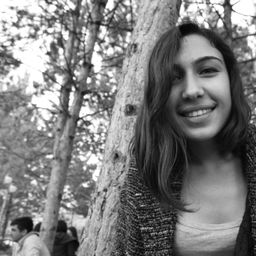Time-relational reading between culture and form: Transformation of Beykoz Sümerbank industrial complex until the 1990s
My Session Status
What:
Paper
When:
1:30 PM, Wednesday 31 Aug 2022
(20 minutes)
Where:
UQAM, pavillon J.-A. De Sève (DS)
- DS-1570
| In the recent decade of urban transformation, former industrial places which have been shaped according to the era’s socio-political and economic conditions, have become the main actor to understand the change and its process. The XVIII TICCIH congress in Montreal will be an opportunity to discover the differences and hidden parts of those changing processes depending on the geography-specific dynamics which are strictly linked with the industrialisation and de-industrialisation process of nations. In fact, analysing industrialisation processes is fundamental to understand how industrial heritage places have been physically and socially developed by multiplying the pre-existing tangible and intangible values in industrial culture. Within the scope of this congress, this paper proposal aims to discuss how Ottoman industrialisation have turned into republican direction, and how these industrial places have been socio-culturally and physically developed until the de-industrialisation process when it started to arise in Turkish context in the 1990s. To do this, we propose to re-read this specific process within the historical trajectory of one of the former industrial places, namely Beykoz Sümerbank Industrial Complex which was constructed during the Ottoman Era based on the Ottoman industrialisation ideas, and it was developed in the republican period as the soviet socialist model of monogorod following the republican industrialisation ideology which is also strictly linked with modernism. We assume that the time relational reading between culture and form on the selected industrial heritage site is fundamental to understand how the built and urban forms have been changed physically, socially, and culturally by constituting the contemporary state of the place as one of the important modern heritages. More specifically, this prototype session proposal aims to discuss those transition moments and related connections in the given culture which have stimulated the industrialisation process during these years, and how they have changed the physical and social environment of the selected industrial heritage place together with urban life. To discuss this relationship between ‘queens’ of transformation in the culture and transformed built and urban forms which have formed the industrial culture in Turkish context by constituting the modern industrial heritage places, Beykoz Sümerbank Industrial Complex has been selected to re-read them on a real-world case study. Revisiting and linking those cultural connections to a specific case study via ‘forms’ is instructive to understand the change as a process. Within this regard, for this prototype session we propose to prepare a poster that shows both those cultural events and connections as ‘queens of the transformation’ of the case study during the industrialisation process, and how these ‘cultural’ drivers have changed the industrial heritage site under investigation via its forms including built, urban, and cultural. To do this time-relational reading periodisation is identified starting from the case study’s construction date in the 1800s until the de-industrialisation was arisen in the given context in the 1990s. Following this, the 1930s is defined as formation of early republican industrial culture and industrialisation, the 1940s is analysed as industrial culture and ‘modern’ articulation, and the 1950s follows it through ‘social’ articulation when the heritage site was developed based on the soviet socialist model by Czechoslovakian invited experts. While the period between the 1960s and 1980s is identified as administrative and legislative change in the culture, while on the other hand, the 1990s is revisited as economy in change through privatisation when the deindustrialisation started to appear, and the selected case study terminated the ongoing industrial activity in the campus by putting in the State’s privatisation agenda. This research is based on a part of the ongoing PhD thesis of the author. |
